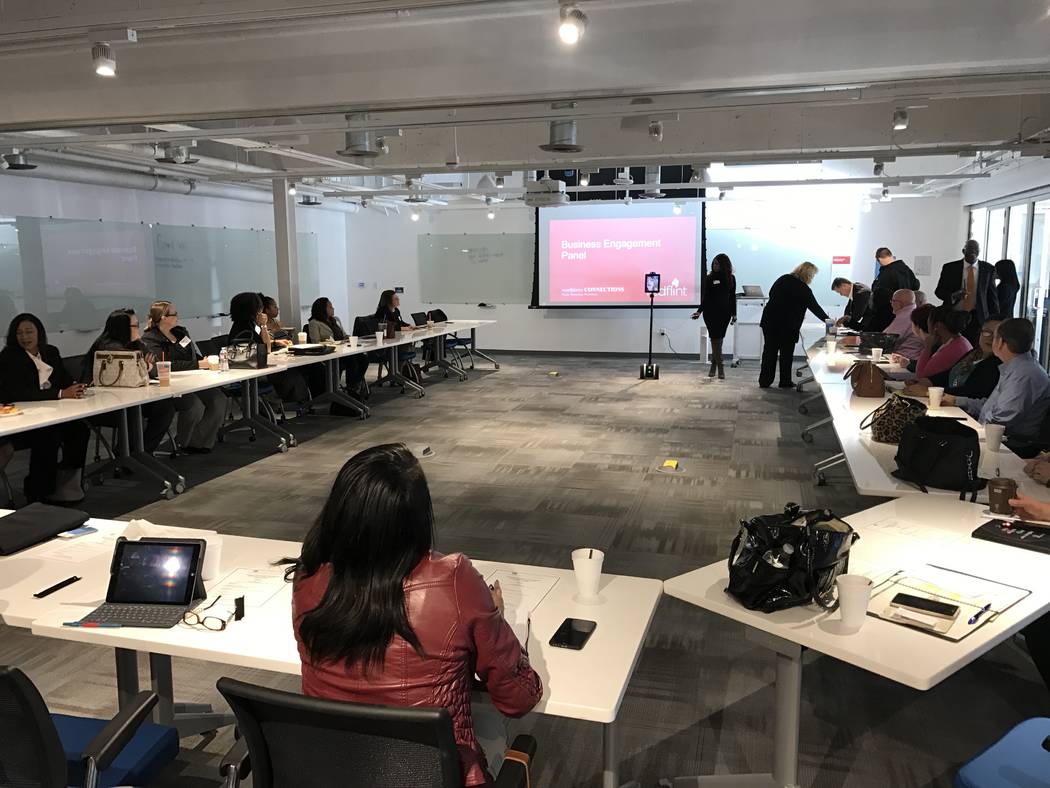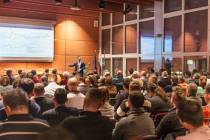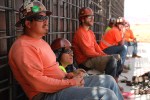Employers share their experiences at Business Engagement Panel
“When people talk, listen completely. Most people never listen.” — Ernest Hemingway
Listening is important.
If you are thinking about what you are going to say next, you are not listening. If you are not open to changing your mind or opinion, you are not listening. If you think you know it all and don’t need to listen, trust me, you are mistaken.
It’s the same when it comes to planning effectively for future workforce needs in Southern Nevada. Open lines of communication are needed with the ones doing the hiring. We need to listen to the needs, wants, concerns and challenges — and be open to what is working, and what is not working.
Makes sense, right?
As a public agency tasked with connecting employers with a ready workforce, we engage employers to share their experiences, so we can create a demand-driven system. We want our community to be trained for the jobs that are here or are coming.
So how do we do that? We create opportunities for those who have decision-making and hiring authority in local businesses to come together on a regular basis to provide feedback, engage in conversation and let us listen.
We call it the Business Engagement Panel. The panel is composed of key employers in Southern Nevada that are members of the Workforce Connections’ Business Engagement Compact (nvworkforceconnections.org/?page_id=8373); basically, businesses that make a commitment to work with, support and hire candidates through Workforce Connections and partners.
Panel members deliver “real time” and locally relevant workforce intelligence. The information is used to improve service delivery within the One-Stop Delivery System and to align training resources.
The goals of the Business Engagement Panel are:
— Examine major issues in the field of workforce and economic development, and work to create programs, partnerships and sultans to complement policy decisions;
— Build on the principals of transformation for workforce development: initiating proactive collaboration and partnerships, connecting strategic planning to regional economies, and creating customized solutions for businesses and workers in transition;
— Drive change within the workforce development system that aligns workers to services with benefits and resources that educate and prepare them for structural changes in the global marketplace;
— Craft the vision of “talent development” that results in our local labor market needs;
— Adopt tools, approaches, and successes that overcome barriers to performance and encourage innovative practices;
— Focus on the creation of a demand-driven, integrated publicly funded workforce development system.
The unemployment rate is on the decline here in Southern Nevada, and that’s great news. But there is a host of new career opportunities for which our local workforce needs to be trained and prepared.
That’s our mission. But we know we can’t do it alone so, employers, join us. We are listening — completely.
To learn more about Workforce Connections’ Business Engagement Panel or become a member of the compact, contact Celia Rouse at 702-636-4380 or crouse@nvcareercenter.org.
Kenadie Cobbin Richardson is the director of business engagement and communications for Workforce Connections, Southern Nevada’s local workforce development board. Funded by the federal Workforce Innovation and Opportunity Act, Workforce Connections’ mission is to connect employers to a ready workforce. For more information, visit nvworkforceconnections.org or nvcareercenter.org. Email Richardson at krichardson@nvworkforceconnections.org.




























